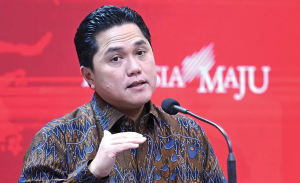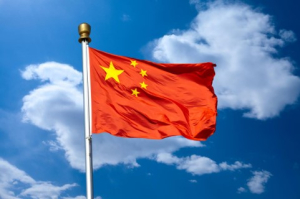Indihome plans merge with Telkomsel under Conditional Spin-off Agreement valued at IDR 58 trillion
IndiHome, a subsidiary of a state-owned telecommunication company PT Telkom, will soon merge with Telkomsel based on Conditional Spin-off Agreement (CSA) agreement. The merger, which is expected to be finalized by Q3 of 2023, will transfer Indihome's various B2C and B2B businesses to be managed by Telkomsel.
Founded in 2015, IndiHome is a subsidiary of PT Telkom Tbk (TLKM) which provides fixed broadband internet which includes internet services, voice bundling, Internet Protocol Television (IPTV), Over-the-top (OTT), and digital services.
Merger as part of business transformation, and opportunities
The CSA agreement will combine the two businesses in the field of fixed broadband and mobile broadband into one business entity. The merger reflects the company's business transformation in the telecommunications market. Further, the company will prepare fixed broadband and cellular services for retail customers.
The agreement received support from Telkomsel's shareholders Telkom and Singtel. "The process of integrating broadband services for TelkomGroup retail customers is part of the Five Bold Moves business transformation to strengthen the company's position as a leader in the digital telecommunications market in Indonesia," said Ririek Adriansyah, President Director of Telkom, as reported by infobanknews.com, on April 10, 2023.
Telkom promises a variety of broadband services to strengthen its business and to achieve digital inclusion in Indonesia. The Indonesian people is expected to be able to access a wider range of broadband services through the integration of the two companies without worrying about service cutoff.
"TelkomGroup's business transformation also opens opportunities for companies to operate more effectively and efficiently, both from the company's business structure, capital allocation, and operational costs," said Adriansyah.
In addition, according to Hendri Mulya Syam, President Director of PT Telekomunikasi Selular (Telkomsel) as reported by infobanknews.com, this integration will strengthen Telkomsel's position in Indonesia, as well as expand its portfolio of fixed mobile convergence (FMC) services.
Meanwhile, demands for broadband internet services increased after the pandemic and are becoming a trend in the global telecommunications industry. "The post-pandemic conditions demand high-quality broadband, and the trend of fixed-mobile convergence in the global telco industry make this step significant for Telkomsel in strengthening its position as the leading integrated telecommunications company in Indonesia and increasing significant growth potential," said Yuen Kuan Moon, CEO of SingTel Group.
Merger scheme
IndiHome currently controls 75.2% of the Indonesian market share with an even higher potential for internet services because of low Internet penetration. Currently, IndiHome's valuation is recorded at IDR 58.3 trillion (US$ 5.1 billion).
"Based on the conditional separation agreement, the value of the IndiHome business segment to be separated is IDR 58.2 trillion," said Edwin Sebayang, Vice-President Investor Relations of Telkom as reported by dailysocial.id.
The fixed broadband market in Indonesia is the fastest growing market in the world with a penetration of 14 to 15% compared to the 40% cumulative rate for Southeast Asia. In addition, the revenue generated by fixed-line internet services is six times higher compared to mobile broadband services.
For the merger, Telkomsel issued new shares for Telkom and Singtel will take a new 0.5% stake in Telkomsel with a total valuation of IDR 2.7 trillion in cash. Effectively, Singtel's ownership in Telkomsel will be 30.1% while Telkom's ownership in Telkomsel will increase to 69.9%.
Tag
Already have an account? Sign In
-
Start reading
Freemium
-
Monthly Subscription
30% OFF$26.03
$37.19/MonthCancel anytime
This offer is open to all new subscribers!
Subscribe now -
Yearly Subscription
33% OFF$228.13
$340.5/YearCancel anytime
This offer is open to all new subscribers!
Subscribe now






